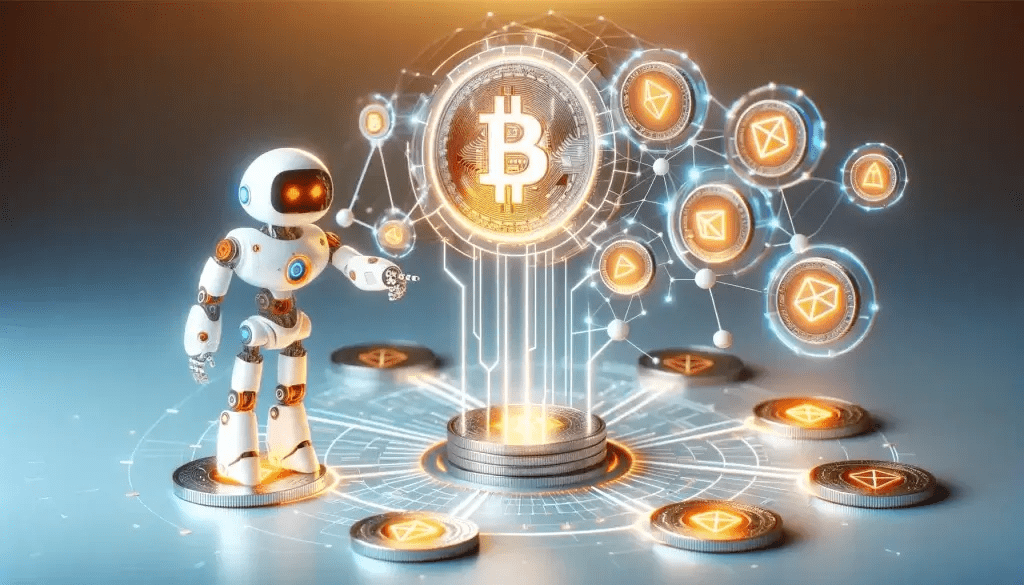AI and blockchain are two revolutionary technologies that are shaping the future of the digital world. While AI drives automation and intelligent decision-making, blockchain ensures transparency, security, and decentralization. When combined, these technologies form a powerful synergy that could redefine industries and drive innovation on a global scale.
AI relies on vast datasets for training and decision-making, and blockchain provides a secure, verifiable method for managing that data. By recording AI training data on an immutable blockchain, companies can ensure that datasets remain tamper-proof, enhancing the accuracy and fairness of AI models. This convergence strengthens data security and provides a trustworthy foundation for AI’s learning process.
One of the biggest challenges with AI is the “black-box problem,” where it’s difficult to understand how AI reaches a decision. Blockchain addresses this by recording AI decisions on a transparent, traceable ledger. This level of accountability is crucial in sectors like finance, healthcare, and legal services, where audit trails are essential for compliance and trust.
Decentralizing AI models through blockchain also eliminates single points of failure. Instead of relying on centralized servers, AI models can be distributed across blockchain nodes, creating more secure, fault-tolerant systems. This approach democratizes access to AI capabilities, enabling broader participation and innovation.
Smarter Smart Contracts AI enhances blockchain’s smart contracts by making them dynamic and adaptive. Traditional smart contracts execute predefined conditions, but AI can introduce flexibility. For instance, AI-driven smart contracts can adjust to real-time data inputs, market changes, or user behavior. This capability allows businesses to create more adaptive and responsive agreements, particularly useful in industries like insurance and financial services.
Monetization of AI Models Blockchain also enables the monetization of AI models. Developers can tokenize their AI algorithms, licensing them via decentralized marketplaces. Creators retain ownership and earn royalties each time their models are used. This decentralized approach democratizes the AI economy, opening new revenue streams for developers and smaller tech companies.
Industry Use Cases AI and blockchain together are transforming key sectors. In healthcare, AI-driven diagnostics, combined with blockchain’s secure data sharing, enable faster, more accurate predictions while maintaining patient privacy. In finance, AI’s predictive analytics and blockchain’s transparent ledgers enhance fraud detection, credit scoring, and risk assessment. Supply chains also benefit, as AI predicts disruptions and blockchain provides end-to-end traceability of goods.
The gaming industry is seeing innovations through AI-driven NPCs (non-playable characters) that react in real-time, while blockchain ensures true ownership of in-game assets like NFTs. Real estate is also evolving with blockchain’s immutable property records and AI’s predictive analytics, streamlining property transactions and market trend forecasting.
Benefits of AI-Blockchain Integration
- Enhanced Security: Blockchain’s cryptographic security strengthens AI’s data integrity, reducing cyberattacks and data manipulation.
- Transparent Decision-Making: AI’s decision-making process becomes more transparent when logged on the blockchain, providing audit trails for critical decisions.
- Decentralized Intelligence: Distributed AI models eliminate central control points, fostering a more secure, fair, and democratized system.
- Auditability: Every decision made by AI can be traced and verified on a blockchain, offering greater accountability in sectors like finance and healthcare.
Challenges of Integration While the integration of AI and blockchain holds immense potential, it also comes with challenges. Blockchain’s transaction speed may limit real-time AI processing, and the combined computational power required for both technologies raises environmental concerns. However, advances in Layer 2 solutions and energy-efficient AI models are mitigating these challenges.
The Future of AI-Blockchain Synergy Looking ahead, the combined potential of AI and blockchain is boundless. We’re likely to see AI-powered DAOs (Decentralized Autonomous Organizations) where AI algorithms make unbiased, data-driven decisions for DAO members. Blockchain-powered AI marketplaces will enable developers to monetize AI models and datasets. Additionally, blockchain-based self-sovereign digital identities, enhanced by AI, will allow for personalized, self-learning digital identities.
The fusion of AI and blockchain is more than a technological evolution — it’s a paradigm shift. Together, they offer unmatched transparency, security, and intelligence. From healthcare to real estate, the combined power of these technologies will drive the future of decentralized and intelligent systems. As the world moves toward Web3, businesses must prepare to leverage the potential of AI and blockchain to stay ahead in the digital economy.






